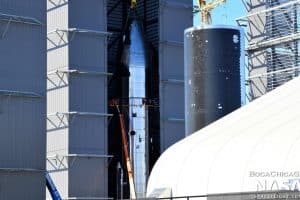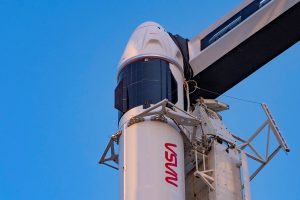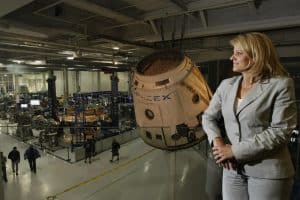In the latest instance of an Amazon-related venture attempting to use regulations and legal routes to suppress competition, Amazon’s Project Kuiper satellite internet venture wants the FCC to dismiss SpaceX’s application for the next generation of Starlink satellites.
In a document filed with the FCC in late August, Project Kuiper took the significant step of asking the regulatory body to entirely dismiss a SpaceX request to modify plans for the next generation of Starlink satellites. As previously discussed on Teslarati, SpaceX submitted that modification request on August 18th with one clear focus: optimizing Starlink satellites and the constellation’s orbital ‘shells’ to best take advantage of the imminent capabilities of the next-generation Starship launch vehicle.
Nominally capable of launching at least 100 metric tons (~220,000 lb) to low Earth orbit (LEO) in a fully reusable configuration, Starship would boost the mass of Starlink satellites SpaceX could orbit with one launch by a factor of 5-6 or more relative to Falcon 9. In other words, with Starship, SpaceX could feasibly fill out its Starlink constellation at least 5-6 times faster than with Falcon 9. However, as is public knowledge, Starship is still firmly in the development stage and has yet to attempt its first orbital launch, adding a great deal of uncertainty to when it might be ready for operational launches.
In turn, while not unprecedented, SpaceX chose to modify its license application for the second (or third) phase of Starlink satellites – a constellation made up of almost 30,000 spacecraft – to include two distinct options: a constellation where Starship is ready on time and one where it is not. Amazon’s Project Kuiper project, Effectively a Starlink clone helmed by former senior managers and engineers that SpaceX CEO Elon Musk personally ousted in 2018 for being slow and overcautious, Amazon’s Project Kuiper was apparently not happy with the changes its competitor made.
Per Amazon’s “ex parte”, the company made it clear that it believed SpaceX’s decision to pose two hypothetical constellation layouts in one application was a radical subversion of FCC requirements and insult to decorum itself, calling it “at odds [with FCC rules]” and implying that SpaceX’s Gen2 mod request is wholly incomplete and an attempt to open up the FCC to blatant speculation.
Published six days later, SpaceX pulls no punches in its response to Amazon, raking the company through the coals for an incessant number (dozens) of filed objections to Starlink while simultaneously failing to address crucial FCC questions about the nature of the Project Kuiper constellation. Bizarrely, SpaceX’s response also accurately points out how Amazon’s legal team seemingly fails to understand SpaceX’s modification request, which poses two mutually exclusive constellation layouts with mostly marginal differences. Amazon’s central argument appears to be that SpaceX actually hasn’t submitted enough information by meticulously detailing two constellation layouts instead of one, claiming that it left “every major detail unsettled.”
Ultimately, it’s now up to the FCC to decide if it will follow Amazon’s demand and reject SpaceX’s application or if it will deny the objection and open it up to public responses and the commission’s own review.





